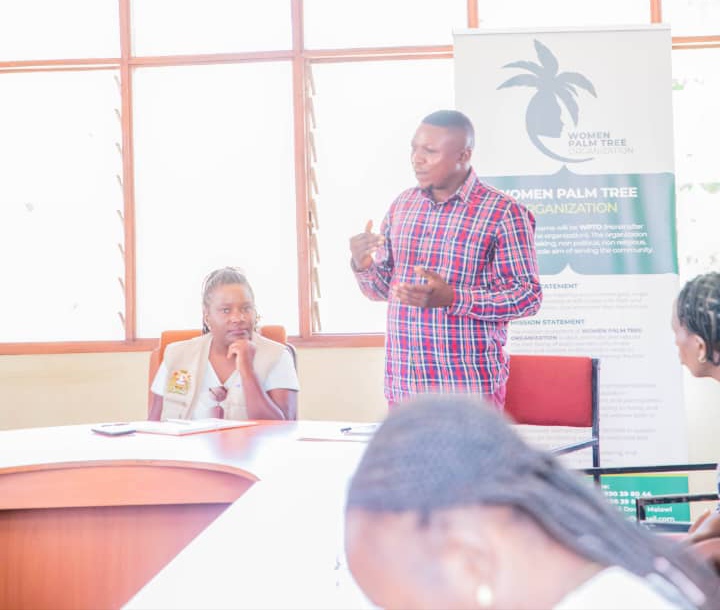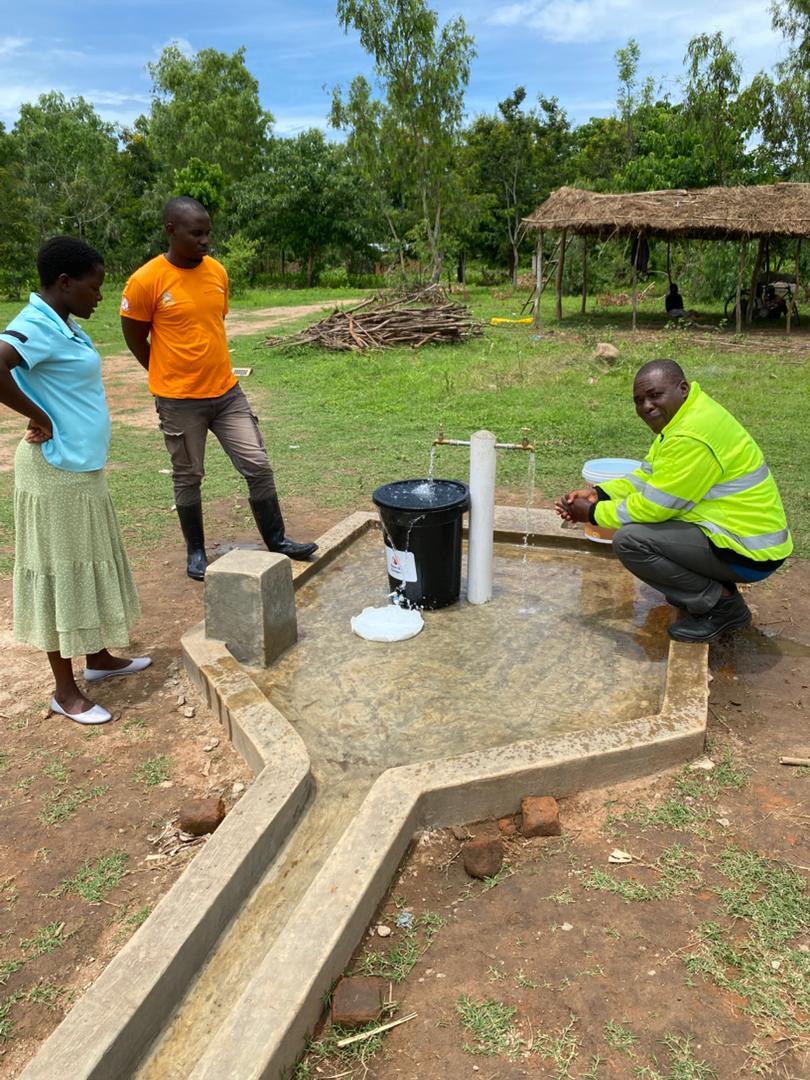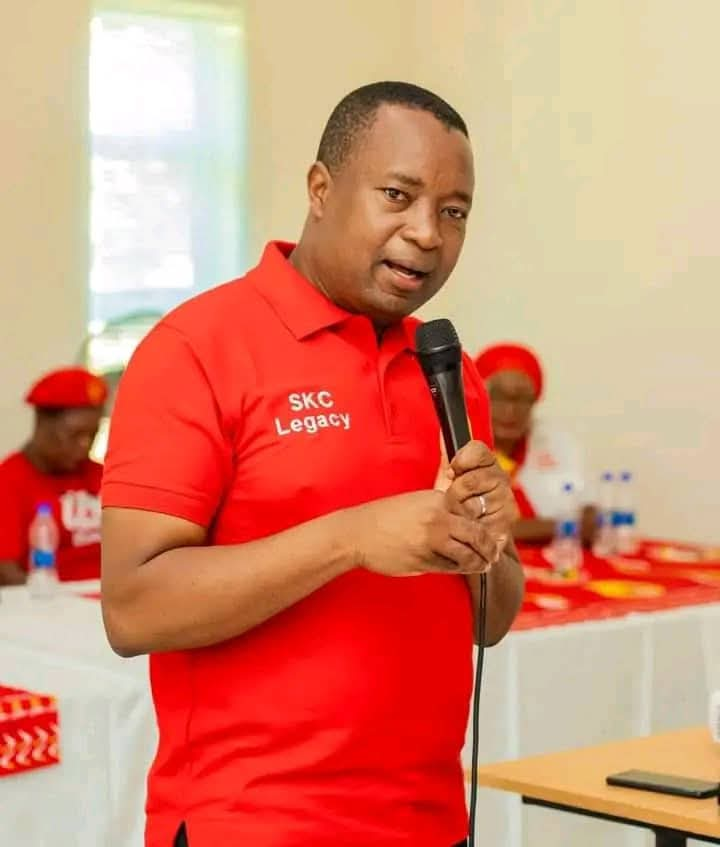By Burnett Munthali
Welcome remarks
Thank you, Comrade Edwards Kambanje, for joining us today. Your wealth of experience in Malawi’s economic and energy sectors offers a unique perspective on the persistent fuel shortages that have been affecting the country. The questions we have prepared aim to unpack the root causes, the economic and social impacts, as well as possible solutions to this crisis.
Question 1: Understanding the root causes
Burnett Munthali: Comrade Kambanje, in your view, what are the core reasons behind the persistent fuel shortages in Malawi?
Edwards Kambanje: Thank you for having me. The persistent fuel shortages in Malawi stem from a combination of factors, the most prominent being the chronic foreign exchange shortage. Malawi heavily depends on imports for its fuel, and when there isn’t enough hard currency, the supply chain breaks down. Additionally, inefficiencies within the fuel procurement and distribution systems, coupled with rising global fuel prices, make it even more challenging for Malawi to maintain a steady fuel supply. Poor infrastructure and lack of investment in energy alternatives also exacerbate the issue.
Question 2: Impact of foreign exchange constraints
Burnett Munthali: How significant do you think the shortage of foreign currency is in exacerbating the fuel crisis in Malawi?
Edwards Kambanje: The shortage of foreign exchange is perhaps the single most significant factor in the fuel crisis. Malawi imports almost all of its fuel, and with the scarcity of foreign currency, suppliers are either unable or unwilling to provide fuel to the market. This leads to long queues at fuel stations, black market trading, and, ultimately, the crippling of key sectors of the economy. The central bank has a limited supply of foreign currency, which makes it difficult to stabilize the fuel supply chain. It’s a vicious cycle—lack of fuel affects production, and a lack of production results in further shortages.
Question 3: Government’s role
Burnett Munthali: How would you assess the role of the Malawian government in handling the fuel shortage? Are there any policy gaps that need to be addressed?
Edwards Kambanje: The government has been reactive rather than proactive in handling the fuel crisis. While we have seen efforts to secure fuel imports, there have been delays and a lack of long-term planning. Policy gaps such as an over-reliance on imports, insufficient investments in alternative energy sources, and weak enforcement of fuel distribution regulations have exacerbated the crisis. We need to see a more coordinated effort, where the government works closely with the private sector to develop local fuel solutions and ensures that foreign exchange allocation prioritizes energy needs.
Question 4: Fuel distribution systems
Burnett Munthali: How efficient is Malawi’s fuel distribution system, and where do you see room for improvement?
Edwards Kambanje: The fuel distribution system in Malawi is far from efficient. There are significant delays in transportation, inefficiencies in storage, and lack of oversight. Many fuel stations have inadequate infrastructure, which makes it harder to maintain a consistent fuel supply. One key area for improvement is the diversification of fuel storage and distribution infrastructure. Additionally, the government should consider upgrading existing fuel distribution networks and ensuring a more consistent flow of supply.
Question 5: Economic implications
Burnett Munthali: What are the broader economic impacts of the ongoing fuel shortages on both businesses and households?
Edwards Kambanje: The economic impacts are devastating. Businesses, especially those in transportation and manufacturing, face increased operational costs due to fuel scarcity. This leads to higher prices for goods and services, which ultimately affects consumers. Households are also struggling, particularly those that rely on transportation for daily activities. It’s a ripple effect that touches every corner of the economy, from small-scale farmers who cannot access markets, to large corporations that rely on fuel for their production processes.
Question 6: Effect on public services
Burnett Munthali: How have the fuel shortages affected essential public services such as transportation, healthcare, and education?
Edwards Kambanje: Public services have been significantly disrupted. In healthcare, for example, ambulances are sometimes unable to transport patients due to the fuel shortage. In education, the cost of transportation for both students and staff has increased, leading to absenteeism. Government-run buses are also affected, which in turn affects access to education for students in rural areas. The transport system, which is crucial for the movement of goods and services, is paralyzed due to this fuel crisis.
Question 7: MERA’s response
Burnett Munthali: How would you rate the effectiveness of the Malawi Energy Regulatory Authority (MERA) in managing fuel supply and regulation during this crisis?
Edwards Kambanje: MERA has been largely ineffective in handling the fuel crisis. While it plays a regulatory role, its efforts have not translated into tangible improvements. MERA has not been able to ensure a steady fuel supply or curb the black market activity that often arises during shortages. There needs to be a more active engagement with fuel importers, distributors, and the public to ensure transparency and accountability in the fuel supply chain.
Question 8: Regional fuel trade
Burnett Munthali: How does the fuel crisis in Malawi compare with the situation in neighboring countries? Is Malawi being isolated in this issue?
Edwards Kambanje: The situation in Malawi is more dire than in many of our neighboring countries. While countries like Zambia and Tanzania also face fuel-related challenges, their fuel distribution systems are more efficient, and they have better access to foreign exchange reserves. Malawi’s reliance on imported fuel, without sufficient infrastructure to manage the crisis, sets it apart. The government’s failure to secure consistent fuel imports has left Malawi isolated in this issue.
Question 9: Private sector involvement
Burnett Munthali: What role should the private sector play in addressing fuel shortages, and what incentives should be introduced for them to participate actively?
Edwards Kambanje: The private sector can play a vital role in addressing fuel shortages by improving the storage and distribution infrastructure and securing alternative energy solutions. The government should incentivize the private sector by offering tax breaks, providing access to foreign exchange at favorable rates, and ensuring that importers can access the fuel supply chain without bureaucratic delays. The government should also create a competitive market for fuel imports to encourage innovation and efficiency.
Question 10: Political influence and fuel scarcity
Burnett Munthali: Do you believe political factors or mismanagement have contributed to the ongoing fuel shortages? How can these issues be mitigated?
Edwards Kambanje: Yes, political mismanagement has certainly played a role. At times, political interference in the fuel distribution process has led to inefficiencies, and there’s been a lack of long-term planning. To mitigate this, we need a more technocratic approach where decisions on fuel supply are based on economic data and expert advice, not political expediency. We also need to strengthen institutions like MERA to ensure that decisions are made transparently and independently.
Question 11: Renewable energy solutions
Burnett Munthali: Should Malawi consider investing more in renewable energy sources as a long-term solution to reduce dependence on imported fuel?
Edwards Kambanje: Absolutely. Renewable energy should be a cornerstone of Malawi’s energy policy. Investing in solar, wind, and hydropower would reduce our reliance on imported fuels, diversify the energy supply, and create jobs. It’s a long-term solution that requires the government to prioritize clean energy development and put in place the necessary infrastructure to support it.
Question 12: Immediate policy recommendations
Burnett Munthali: What immediate policy actions would you recommend the government to take in order to stabilize the fuel supply situation?
Edwards Kambanje: The government must prioritize fuel imports by securing adequate foreign exchange and ensuring timely payments to fuel suppliers. In addition, it must focus on improving fuel distribution systems and incentivize private sector involvement. Addressing corruption within the fuel supply chain is also key, as it adds unnecessary costs and delays. A clear and transparent fuel pricing mechanism should also be implemented to prevent price gouging during shortages.
Question 13: Long-term energy security
Burnett Munthali: What long-term strategies should Malawi adopt to ensure consistent fuel supply and energy security in the future?
Edwards Kambanje: Long-term strategies should focus on diversifying energy sources, investing in infrastructure, and promoting energy independence through renewables. The government should develop a comprehensive energy policy that integrates both traditional and alternative energy sources, incentivize local energy production, and build reserves to weather external shocks. Additionally, we need to invest in technological solutions to make fuel distribution more efficient.
Question 14: Public perception and trust
Burnett Munthali: How do you think the general public perceives the government’s handling of the fuel shortage? Is there a loss of trust?
Edwards Kambanje: There is indeed a loss of trust. The general public feels that the government has failed to deliver on promises of energy security. The ongoing shortages have caused frustration, especially since fuel is a critical part of the daily life of every Malawian. This loss of trust needs to be addressed by a government that is transparent, accountable, and committed to solving the crisis.
Question 15: Future outlook
Burnett Munthali: Looking ahead, what do you foresee as the possible outcomes if Malawi does not address the current fuel supply challenges adequately?
Edwards Kambanje: If Malawi does not address this fuel crisis, the situation will continue to worsen, leading to further economic stagnation. Key sectors such as transportation, manufacturing, and agriculture will continue to suffer. The ripple effect on social services like healthcare and education will be profound. Eventually, we may see widespread protests and civil unrest due to the economic hardship fuel shortages create.
Question 16: Final thought
Burnett Munthali: What is your final thought or recommendation regarding the fuel shortage issue in Malawi?
Edwards Kambanje: My final thought is that Malawi’s fuel crisis is not just an energy issue; it’s a national security issue. We need a comprehensive strategy that includes short-term interventions to alleviate the current crisis and long-term investments in alternative energy sources. The government must show leadership, be transparent, and work with the private sector to ensure that Malawi is never in this position again. The time to act is now.
Closing remarks
Thank you, Comrade Edwards Kambanje, for your candid and insightful responses. Your analysis has shed light on




